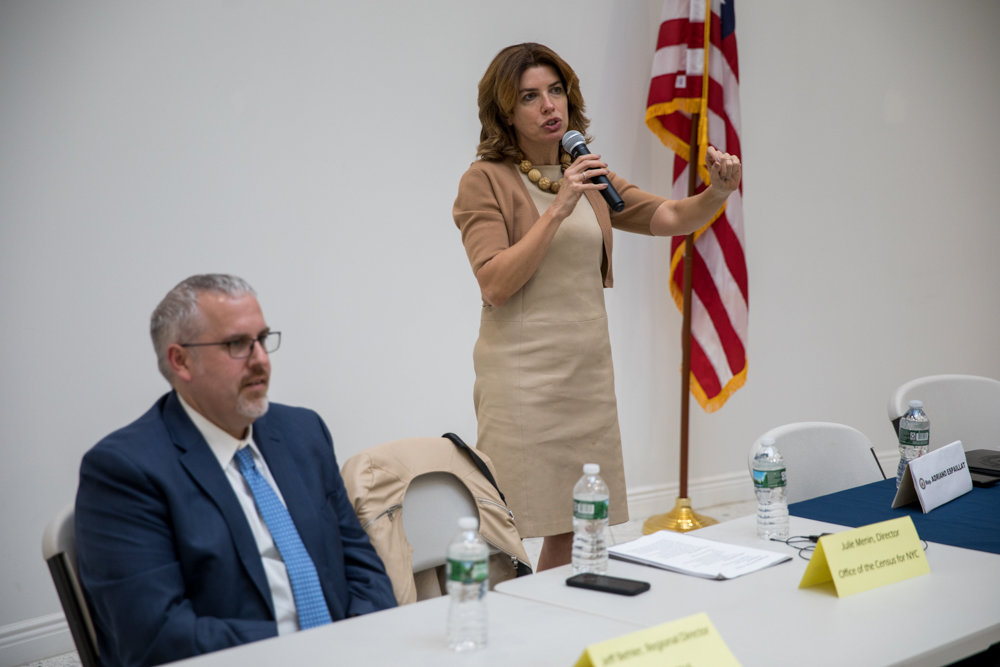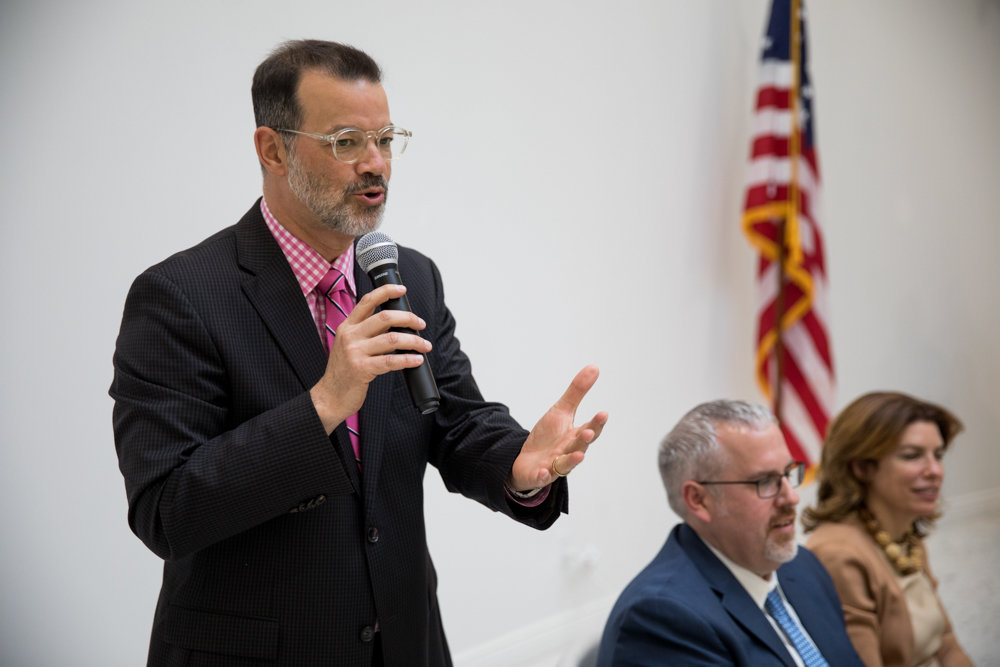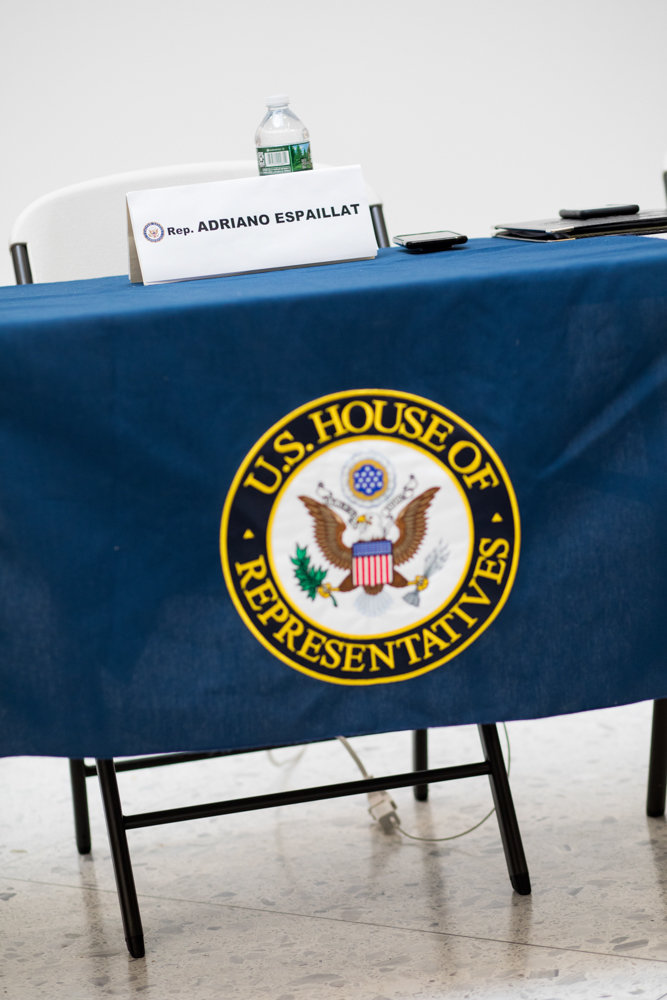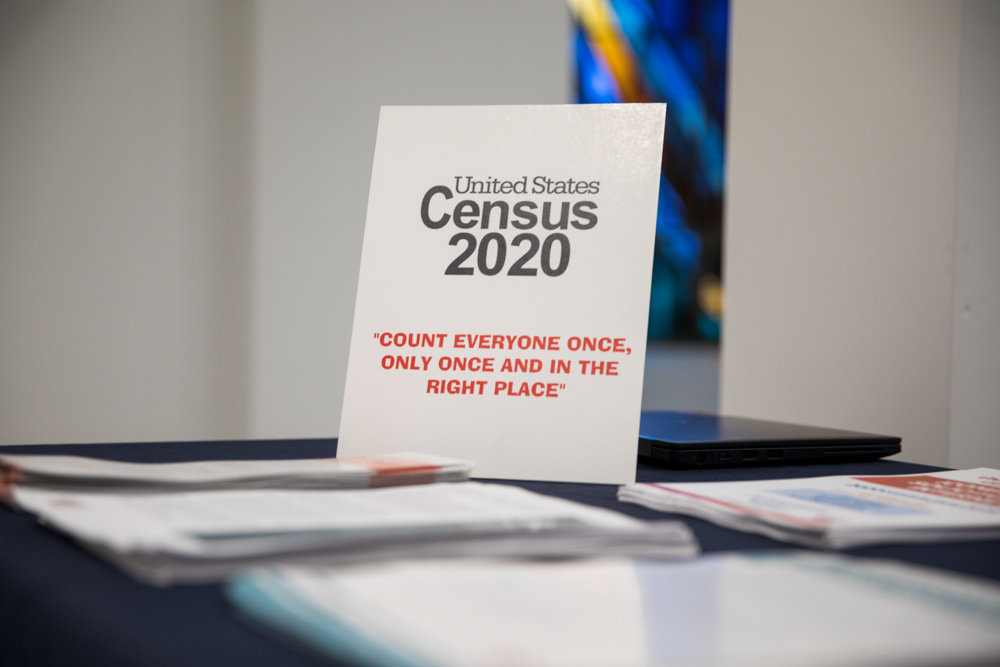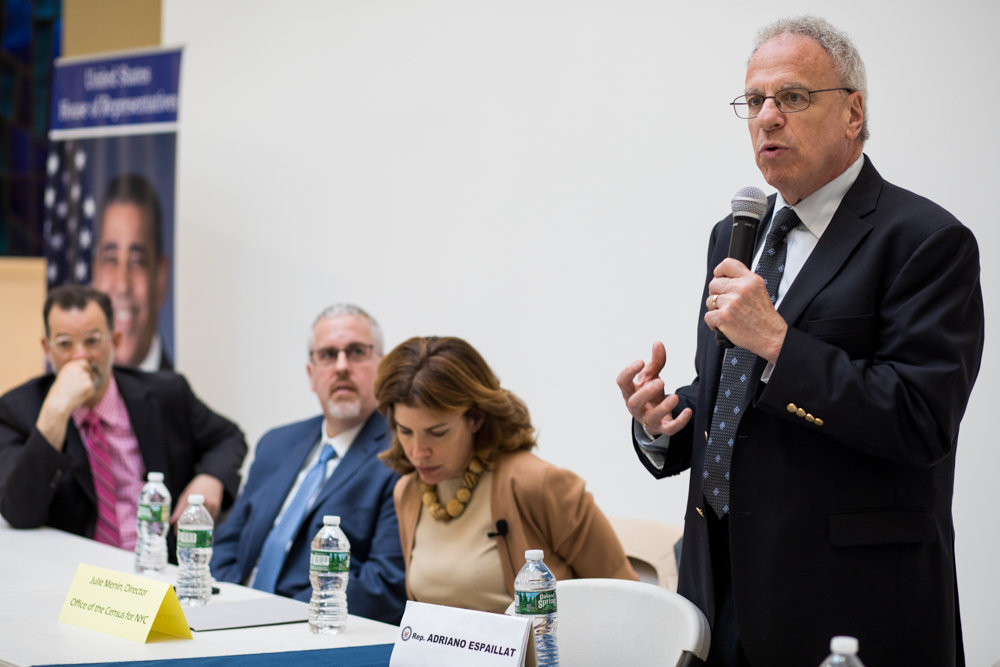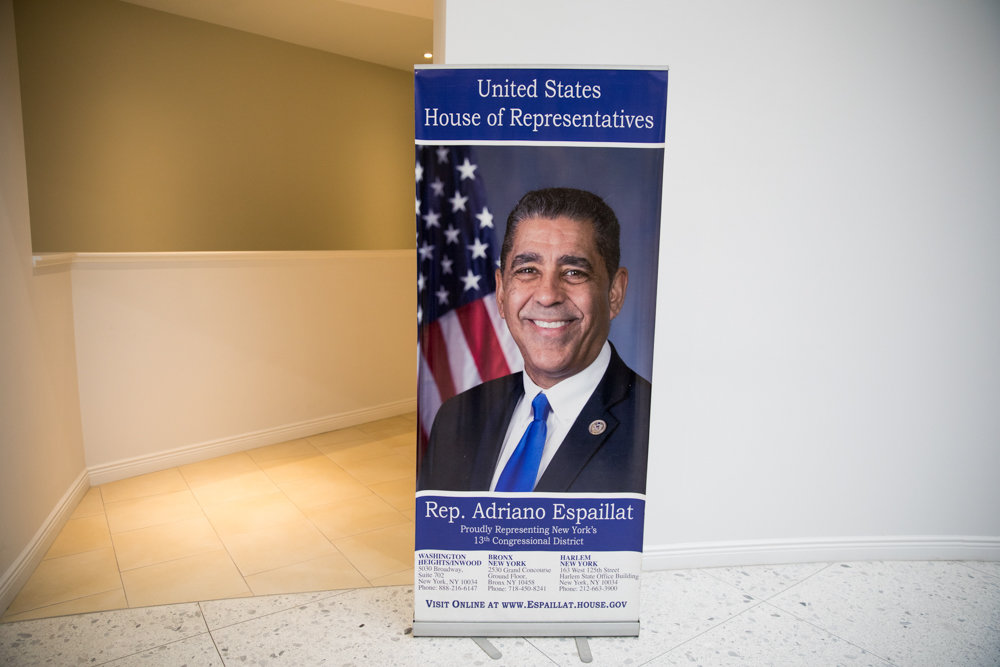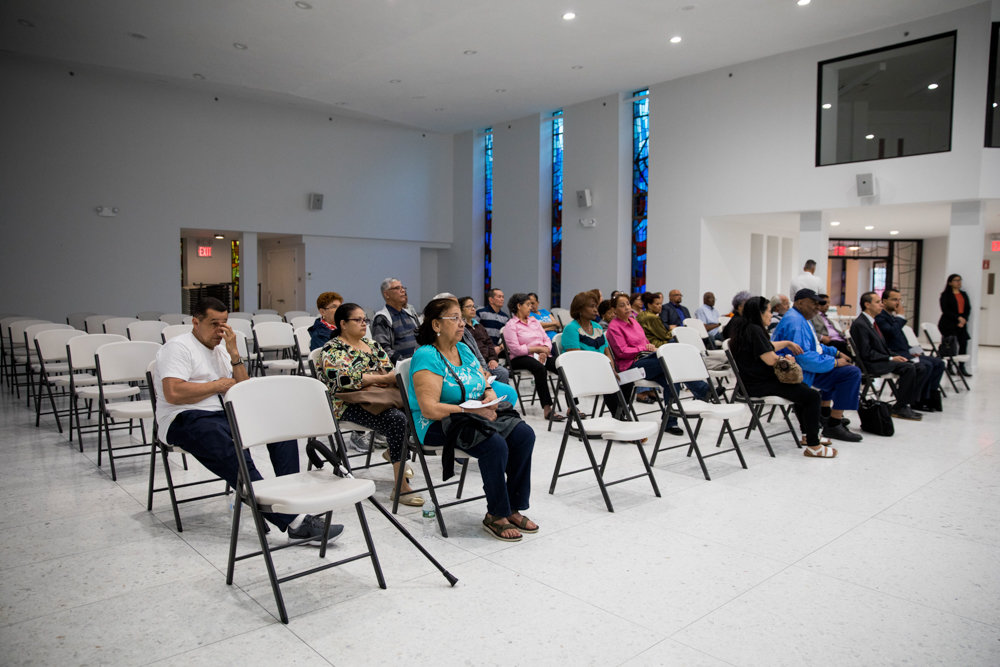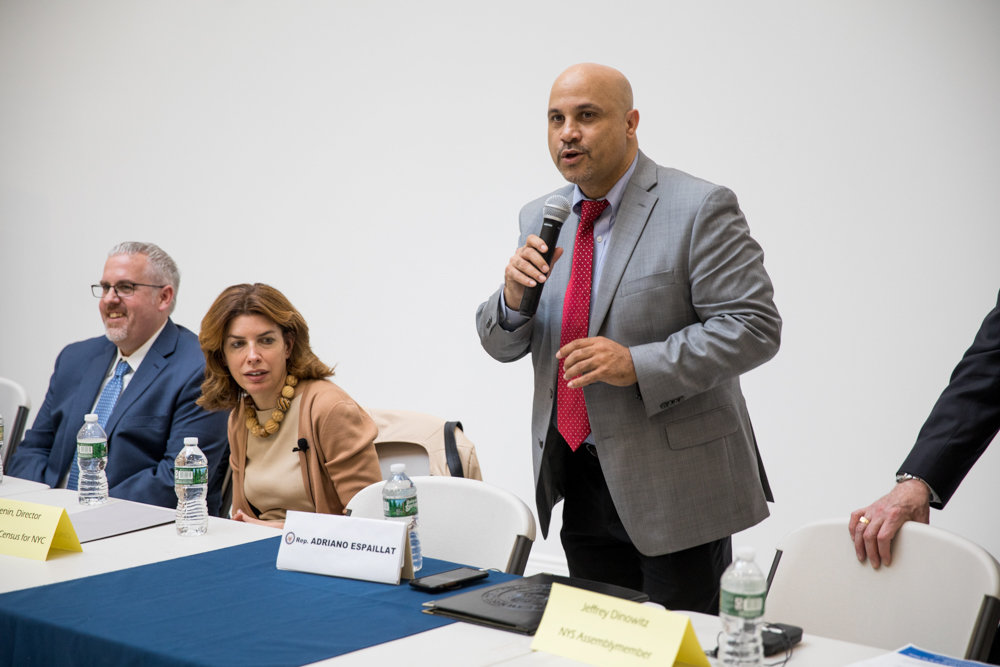City officials recruit Bronx leaders to 2020 census cause
Next March, every household in the country is expected to receive a notice in the mail, encouraging them to fill out the 2020 U.S. Census Bureau survey.
Mandated by the U.S. Constitution, the decennial count is the largest U.S. peacetime mobilization effort. And yet, New York City is historically bad at counting its millions of people.
That’s why earlier this year Mayor Bill de Blasio appointed Julie Menin, a Manhattan attorney with a long history of public service, as the city’s “census czar.” Her job? Partner with community groups and anyone else willing to put in some effort in order to encourage everyone fill out their surveys. And last week, Menin took the podium at a town hall in Bedford Park laying out her plans while also recruiting Bronxites to her cause.
“We are talking about getting our fair share of close to $800 billion the federal government allocates each year,” Menin said in an echoey auditorium at the Academy of Mount Saint Ursula, an all-girls Catholic school on Bedford Park Boulevard, off the Grand Concourse.
Some 70 people listened from the audience as she rattled off all the programs impacted by census-dependent funding: public education, Medicaid, Section 8 housing, food stamps.
“There’s almost no program you might mention that doesn’t depend on us getting our fair share,” she said.
Menin’s plan involves recruiting organizations of all stripes — from community boards and tenants associations, to houses of worship and schools — to ensure people are aware of the census and its importance. Even before the city and the U.S. Census Bureau launch massive ad campaigns next January, Menin hopes to get local leaders speaking about the census, and speaking about it accurately.
“We are going to be reliant on community organizations on the ground that are the trusted voice in their neighborhood,” Menin said. “They are the ones that people listen to.”
Redistricting in 2022 also depends on the 2020 census. Currently, Census Bureau population projections indicate enough people have left the city to cost the Empire State at least one — and quite possibly two — of its 27 congressional seats.
“We don’t want to lose any seats, but we certainly don’t want to lose two,” Assemblyman Jeffrey Dinowitz said at the town hall. While Dinowitz and lawmakers in Albany try to figure out how to stem the flow of people leaving the state, an accurate count is the only way to preserve New York’s Washington delegation.
Dinowitz and Councilman Andrew Cohen were the only two Bronx elected officials in attendance, although representatives for council members Fernando Cabrera and Vanessa Gibson were there to offer support and input. U.S. Rep. Adriano Espaillat, who represents Marble Hill and parts of Kingsbridge, was set to host the town hall, but the congressman never showed: A tornado warning in Washington grounded his plane.
One of the biggest obstacles in getting a complete count facing the city is the self-response rate. Before the U.S. Census Bureau sends out its small army of 500,000 doorknockers next summer, there’s a two-month period where people can fill out and mail in the census form themselves. And for the first time ever, the 2020 census will allow online and over-the-phone completion of the form, too.
Despite the massive number of temporary workers the census plans to hire, knocking on doors is a last resort. The more who self-respond, the fewer people the census will have to track down, saving time and money while reducing the likelihood anyone goes uncounted.
The initial response rate in New York City during the 2010 census was about 62 percent compared to the nationwide rate of 76 percent. The 81st Assembly District fell just short of the national average with an initial response rate of 74 percent, according to data from the CUNY Center for Urban Research.
“Last time, Bronx County did not do as good a job as we need to do this time,” Cohen said. The mayor’s proposed 2020 executive budget allocated $26 million for census outreach, but Cohen said the city council hopes to increase that figure before the budget is finalized in June.
“The city is willing to put its money where its mouth is to get this job done,” Cohen said. “Bronxites need to really participate.”
The primary topic wasn’t ensuring people respond, however. Many of the questions from the audience had one particular part of the survey in mind: the so-called citizenship question. For the first time since 1950, the Trump administration seeks to add a question to the census asking if the respondent is a citizen.
Critics of the question believe it will discourage non-citizens and immigrants from responding. The census, they say, is an accounting of all people in the country, not just citizens.
Several state attorneys general, including New York’s Letitia James, have sued the Trump administration over the question, which is now before the U.S. Supreme Court, with a decision expected this summer.
Regardless, Menin and other census officials are encouraging complete participation, including answering the controversial citizen question. The census is confidential and no law enforcement agency has the legal authority to access specific, identifying census information, said Jeff Behler, the regional director for the Census Bureau’s New York office.
“Whether we lose or win the case, we have to go to the mat to make sure everyone answers the census,” Menin said. “We are encouraging everyone to be ambassadors for the census and making sure people are filling it out.”

